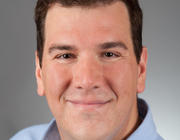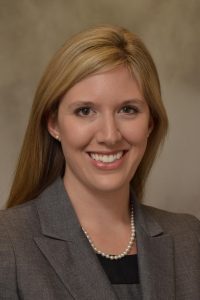CCCF Research Program
A significant area of focus for the the Colon Cancer Foundation (CCF) is research, including the understanding of the causes for early age onset and hereditary colorectal cancer. The Foundation has been supporting young investigators by offering competitive awards through dedicated academic research societies since it’s first walk (The Colon Cancer Challenge) in Central Park in 2003.
This year’s awards include:
THE DR. THOMAS K. WEBER, MD, FACS NEXT GENERATION RESEARCH SCHOLAR AWARD
The goal of this Award is to recognize excellence in clinical research focused on early age onset colorectal cancer. In providing this award, the CCF seeks to both support and promote EAO-CRC research. The CCF has a special interest in the biology of early age of onset CRC. However, research into other areas of early age onset colorectal cancer (e.g., novel treatments, innovative minimally invasive screening technologies) will also be considered.
WHO SHOULD SUBMIT?
The following are eligible to apply:
Trainees (i.e., postdoctoral fellows, residents, and clinical fellows)
Junior faculty (within one year of first independent faculty appointment)
Junior genetic counselors (within one year of completion of training).
DEADLINE FOR SUBMISSION
Deadline for submission is January 15, 2021. Abstracts should be submitted as an MS Word document to the following email address: abstracts@coloncancerfoundation.org.
January 15, 2021 at 11:59 PM ET
Abstract Submission Deadline
TBD
Early Bird Registration Deadline
TBD
Hotel Reservation Deadline
TBD
Abstract Approval Letters Disseminated
TBD
Abstracts Released on EAO-CRC Meeting Library
May 11 7:00 AM – 9:00 PM, May 12 7:00 AM – 12:00 PM
7th Annual EAO-CRC Summit
Abstracts should be submitted as an MS Word document to the following email address: abstracts@coloncancerfoundation.org.
To learn more visit https://coloncancerfoundation.org/about/eao-crc/#abstract
COLORECTAL CANCER RESEARCH SCHOLAR AWARD: COLLABORATIVE GROUP OF THE AMERICAS for the top ranking abstract submitted by a trainee or junior faculty member to the Collaborative Group of the Americas (CGA) in conjunction with their annual meeting. This award will provide $2,000 to cover meeting registration and travel expenses to the CGA Annual Meeting.
COLORECTAL CANCER RESEARCH SCHOLAR AWARD CRITERIA
The goal of this Award is to recognize excellence in translational research focused on the molecular biology of colorectal cancer. In providing this award, the CCF seeks to both support and promote colorectal cancer research. The CCF has a special interest in the biology of early age of onset and hereditary colorectal cancer. However, research into other areas of colorectal cancer (e.g., novel treatments, innovative minimally invasive screening technologies) will also be considered
WHO SHOULD SUBMIT?
The following are eligible to apply:
Trainees (i.e., postdoctoral fellows, residents, and clinical fellows)
Junior faculty (within one year of first independent faculty appointment)
Junior genetic counselors (within one year of completion of training).
HOW DO I SUBMIT AN APPLICATION?
Applicant must submit an abstract submission and fill out the Colon Cancer Challenge Foundation and CGA Colorectal Cancer Research Scholar Award form.
Applicant must be listed as the first author on the abstract.
WHAT ARE THE GUIDELINES?
Trainees applications must provide a letter from a mentor, professor, or supervisor confirming their eligibility.
The abstract must be presented by the award recipient and must be primarily their work.
Any questions regarding the Colorectal Cancer Research Scholar should contact Brandie Leach via cga@pacemedcom.com
COLORECTAL CANCER RESEARCH SCHOLAR AWARD: SOCIETY FOR SURGICAL ONCOLOGY (SSO)
 The CCF and the SSO developed the Colorectal Cancer Research Scholar Award in order to recognize excellence in translational research focused on the molecular biology of colorectal cancer. The award, which includes a $2,500 grant for travel and meeting registration support, is made to the presenter of the abstract that secures the highest review score from the SSO Scientific Program Committee and is focused on colorectal cancer.
The CCF and the SSO developed the Colorectal Cancer Research Scholar Award in order to recognize excellence in translational research focused on the molecular biology of colorectal cancer. The award, which includes a $2,500 grant for travel and meeting registration support, is made to the presenter of the abstract that secures the highest review score from the SSO Scientific Program Committee and is focused on colorectal cancer.
This year we got very creative and presented a virtual Poster award to Dr. Naomi Sell, MD! Congratulations Dr. Sell. Watch the presentation HERE.
2020: Ten Year Survival After Pathologic Complete Response in Rectal Adenocarcinoma, Naomi Sell, MD, Massachusetts General Hospital, Boston, MA
For additional information on the Abstract submission process please visit: https://events.jspargo.com/SSO19/public/Content.aspx?ID=72973
Research Grant Awardees
Christopher Cassa, PhD
Christopher Cassa, PhD, is an Instructor at Harvard Medical School, a research affiliate at Boston Children’s Hospital, an  associate geneticist at Brigham and Women’s Hospital and a research affiliate at the Broad Institute. Dr. Cassa is a graduate of the Harvard-MIT Division of Health Sciences and Technology program in Bioinformatics and Integrative Genomics. His laboratory conducts predictive analytic research in the pathogenicity assessment of genomic variants. This application draws on population and epidemiologic data to improve prediction accuracy.
associate geneticist at Brigham and Women’s Hospital and a research affiliate at the Broad Institute. Dr. Cassa is a graduate of the Harvard-MIT Division of Health Sciences and Technology program in Bioinformatics and Integrative Genomics. His laboratory conducts predictive analytic research in the pathogenicity assessment of genomic variants. This application draws on population and epidemiologic data to improve prediction accuracy.
One of the most important problems in modern clinical and translational medicine is the analysis of genomic sequence data. Healthy individuals carry hundreds of genetic variants that have been previously associated with disease, and there is a pressing need to distinguish between causal variants and those that are either incompletely penetrant or false positives. We computationally assess the clinical impact of these genetic variants using previously unleveraged population health datasets and machine learning approaches. We have improved existing techniques by identifying a patient’s most likely pathogenic and clinically significant variants, and have separately assessed the clinical and syntactic validity of previously described variant databases.
Andrea M. Abbot

Describe yourself (Personal background, academic background, interests…)
I am from Kansas City, Missouri and received both my Bachelor’s and medical degrees from the University of Missouri-Kansas City combined 6-year program. I completed my general surgery residency at the University of Minnesota during which time I spent two years performing outcomes research and received a Master’s Degree in Clinical Research from the UM School of Public Health. Upon completion of my residency in 2013, I started in my current position as a Fellow in Complex General Surgical Oncology at Moffitt Cancer Center.
My personal interests include spending time with my two children who are 2 and 4 years old, reading, paddle-boarding, and playing golf.
Tell us about any awards and distinctions you have received
During residency I received awards from the Association of Women Surgeons and the University of Minnesota for outcomes research I conducted. I was honored with the Henry Buchwald Award during residency for my commitment to academic medicine and was chosen by the surgical residents as resident mentor of the year for teaching both in and out of the operating room. During fellowship I was recognized by the University of South Florida for outstanding research and I received the ASGO-GI Merit Award in January 2015 for work conducted on treatment of neuroendocrine tumor metastases.
Tell us about your past work and research efforts in the past and its significance to colon cancer
Colon cancer is a preventable disease and, if caught early, is largely curable however, when it has spread to other organs the prognosis is poor. My past work has focused on colon cancer prevention as well as outcomes of different modalities used in the treatment of metastatic disease.
What is your mission and goals in the current work that you are doing?
Alarmingly, the incidence of colon cancer appears to be increasing in patients under the age of 50 years old. Although a number of young patients are identified as having hereditary syndromes, a significant proportion have no known identifiable inherited condition. The overall goal of our current work is to characterize patterns of genetic mutations in young patients as compared to those in older patients. Ultimately, we hope to be able to identify unique genetic events that contribute to the development of colon cancer in young patients which then potentially will allow us to identify patients and develop personalized treatment strategies.
What are your goals for your future?
I will be finished with my fellowship this year and hope to continue my work in academic medicine. I would also like to continue my outcomes research with a focus in decision-making analysis
Give us a sense of the excitement and enthusiasm you have felt as your research as moved forward. Do you think we’re close to a breakthrough? What would a breakthrough mean for millions of people?
Our current work has indeed been very exciting, particularly the opportunity to apply cutting-edge molecular technology to help answer our research question. Our work is still in its early stages but our findings do suggest that there are indeed differences in the biology of colorectal cancer between younger and older patients. A definitive breakthrough in this area could potentially lead to novel methods for prevention, detection and treatment of early age onset colorectal cancer which in turn, may lead to saving numerous lives.
For those who may not have the scientific background that you do, why is it so important that we all support the research being done in the field of colon cancer treatment and prevention?
Most people don’t realize that in men and women combined, colorectal cancer is the 2nd leading cause of cancer death in this country. It is a significant health problem and continuing research efforts to improve prevention, screening and treatment will have an enormous impact.
